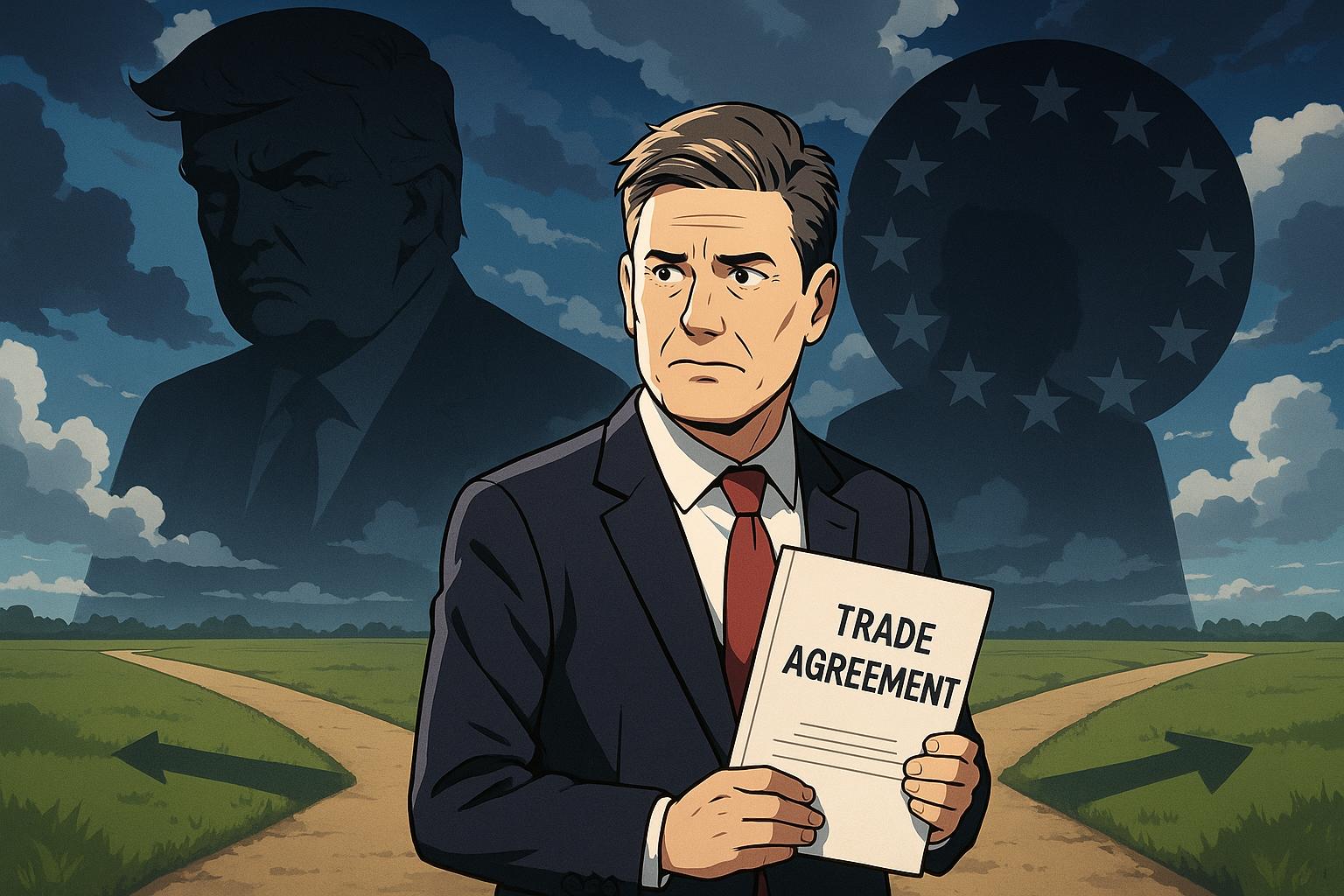Sir Keir Starmer faces mounting pressure as Donald Trump has thrown a spotlight on future trade relations with the European Union, threatening to impose a 50 per cent tariff on EU goods as tensions rise between Washington and Brussels. This announcement, made via Trump's Truth Social platform, comes amidst ongoing trade negotiations and suggests a significant shift in the landscape for the UK's future trade strategies. Analysts interpret this escalation as a wake-up call for the UK, which may soon find itself embroiled in transatlantic disputes.
The threat from the US President coincides with the unveiling of Starmer's ambitious 'reset' deal aimed at fostering closer ties with Europe, a move that many Brexiteers denounce as a potential backtrack on the promises made during the Brexit referendum. Critics have voiced concerns that this approach could inch the UK back into the EU’s customs union or single market framework, subjects that have long been contentious in UK politics. Should tariffs materialise, the repercussions would not be limited to the EU, potentially extending to the UK as trade becomes entangled once more.
One of the central criticisms of Starmer's deal is the compromise over fishing rights, which allows EU trawlers access to UK waters for an additional 12 years. This aspect has been labelled a 'surrender' by critics, including former Conservative leader Sir Iain Duncan Smith, who warns that yielding to the EU's Sanitary and Phytosanitary Agreement diminishes UK sovereignty. Furthermore, there is concern that Starmer’s approach aligns the UK too closely with EU standards, resulting in the UK becoming a ‘rule-taker’ in several key areas.
Economic impact is also at the forefront of discussions surrounding the new agreement. While Starmer indicates that the deal could bolster the UK economy by up to £9 billion by 2040, experts are sceptical, noting that this merely offsets a fraction of the estimated 4% long-term GDP hit from Brexit. As stock markets responded negatively to Trump's tariff threats, with the FTSE 100 and European markets experiencing declines, questions arise about the viability of trade-dependent strategies in such an unpredictable environment.
The agreement includes more than just economic ties; it sets a renewed framework for security cooperation between the UK and the EU. This fresh commitment to collaboration encompasses military training, cyber security, and participation in EU defence initiatives, reflecting broader geopolitical realities. The UK-EU relationship, long strained post-Brexit, is now positioned to evolve, especially as security concerns—exacerbated by the ongoing war in Ukraine—take centre stage.
Moreover, the muted public response to Starmer's deal might indicate what some experts term 'Brexit fatigue.' Although there are underlying concerns about sovereignty and immigration, the electorate appears less engaged than during previous Brexit debates. The political implications of restoring ties with a previously contentious partner are delicate, and Starmer's strategy must navigate the existing sentiments of scepticism and division.
As trade tensions heighten globally, the potential ramifications of Trump's proposed tariffs loom large over the UK, which has recently attempted to regain its footing in post-Brexit Europe. With demands for a stronger negotiating stance and mounting criticism from within his party, Starmer's leadership faces its most daunting challenge yet—striking a balance between pragmatism and conviction in an increasingly volatile international landscape.
Reference Map:
- Paragraph 1 – [1], [4]
- Paragraph 2 – [1], [2], [3]
- Paragraph 3 – [6], [5]
- Paragraph 4 – [1], [5]
- Paragraph 5 – [3], [2]
- Paragraph 6 – [4], [6]
Source: Noah Wire Services
